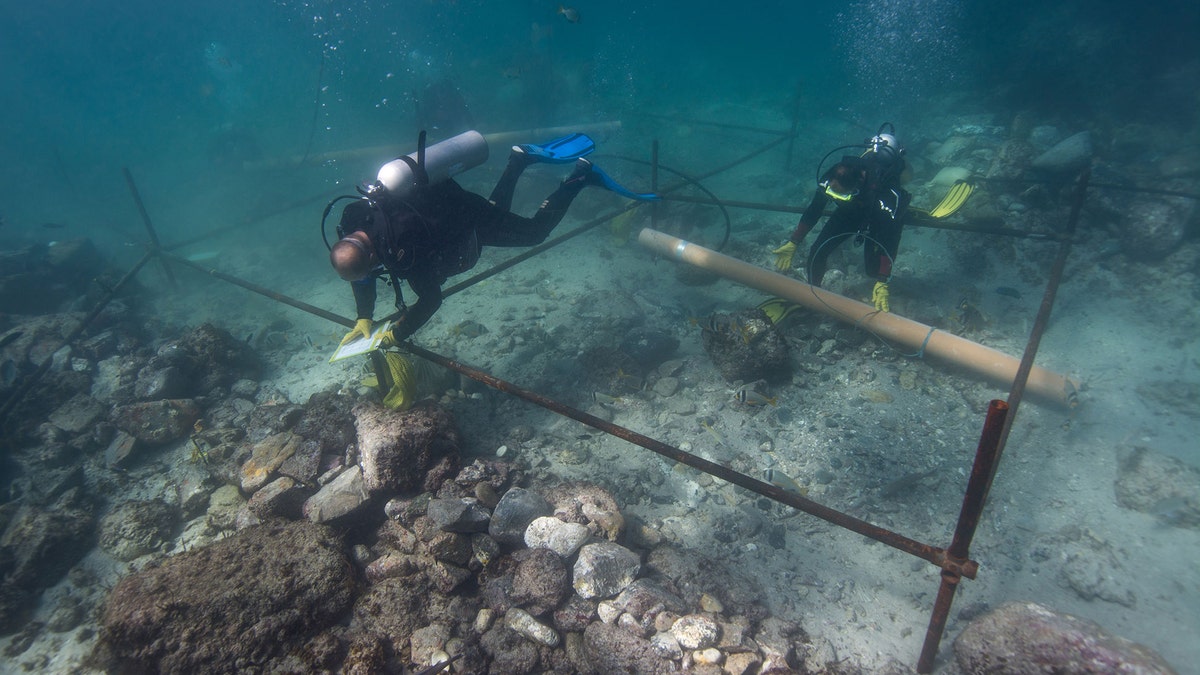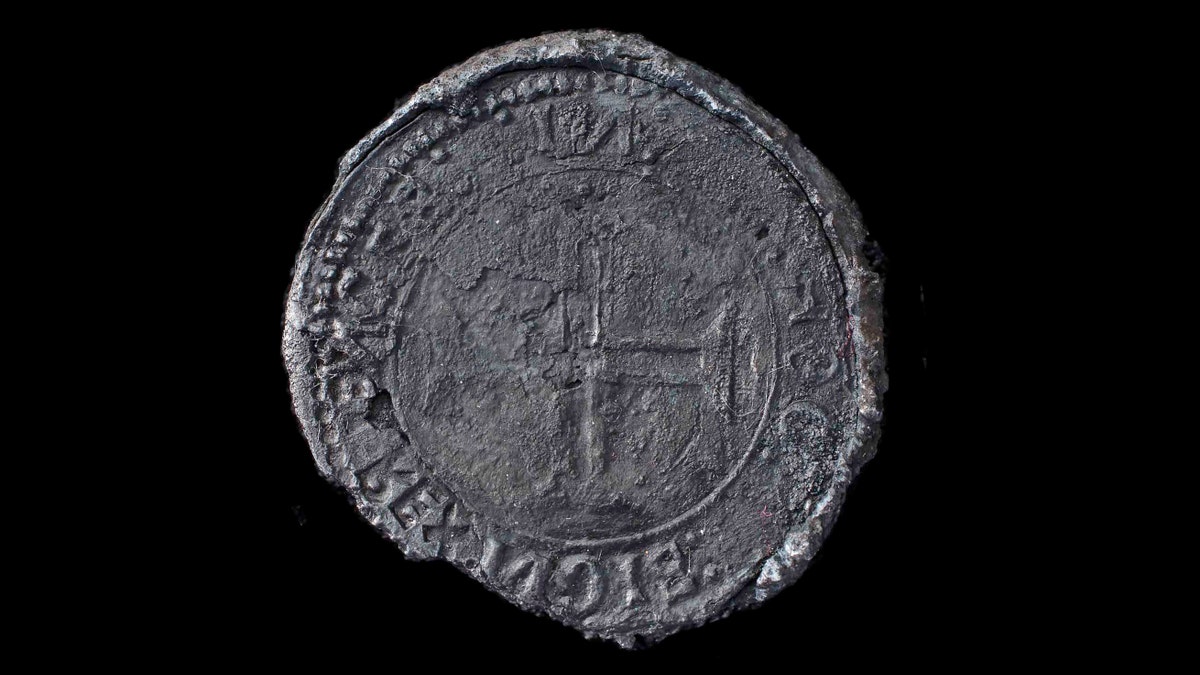
In this undated photo made available by Blue Water Recoveries company on Tuesday, March 15, 2016, divers excavate the wreck site of the Portuguese explorer Vasco da Gama's ship, Esmeralda which sank in a storm in May 1503 off the coast of Al Hallaniyah island in Oman's Dhofar region. (Blue Water Recoveries company via AP)
DUBAI, United Arab Emirates — The 500-year-old wreckage of Portuguese ship piloted by an uncle of explorer Vasco da Gama has been found off the coast of Oman, archaeologists said Tuesday, a discovery that included the recovery of an incredibly rare coin.
The Esmeralda sank during a violent storm near al-Hallaniyah Island in the Indian Ocean in May 1503, killing commander Vicente Sodre and all those aboard.
Beginning in 2013, a team from the British company Blue Water Recoveries and the Oman Ministry of Heritage and Culture explored a site in the island's Ghubbat ar Rahib Bay. They later determined the debris found there came from the long-missing ship, one of two lost in the storm from da Gama's second voyage to India.

This undated photo made available by Blue Water Recoveries company on Tuesday, March 15, 2016 shows a rare silver coin called an Indio discovered from the debris of the explorer Vasco da Gama's ship, Esmeralda which sank in a storm in May 1503 off the coast of Al Hallaniyah island in Oman's Dhofar region. (Blue Water Recoveries company via AP)
Among the stone shot, ceramics, a bell and other debris, divers discovered an incredibly rare silver coin called an Indio, of which only one other is known to exist today, said David L. Mearns, the director of Blue Water Recoveries. The coins were forged in 1499 after da Gama's first voyage to India, which helps date the wreckage, he said.
"That was an amazing discovery," Mearns said. "It was like a thing you read about in a Hollywood story."
The archaeologists announced their findings in an article published Tuesday by The International Journal of Nautical Archaeology.
Ayoub al-Busaidi, the supervisor of marine archaeology at the Oman Ministry of Heritage and Culture, said this marked the first underwater excavation carried out by his country. He said it inspired officials to continue to explore the waters around the sultanate for other finds.
"Oman is now looking at outside archives to read about the relationships and trade between Oman and the outside" world, al-Busaidi said.







































